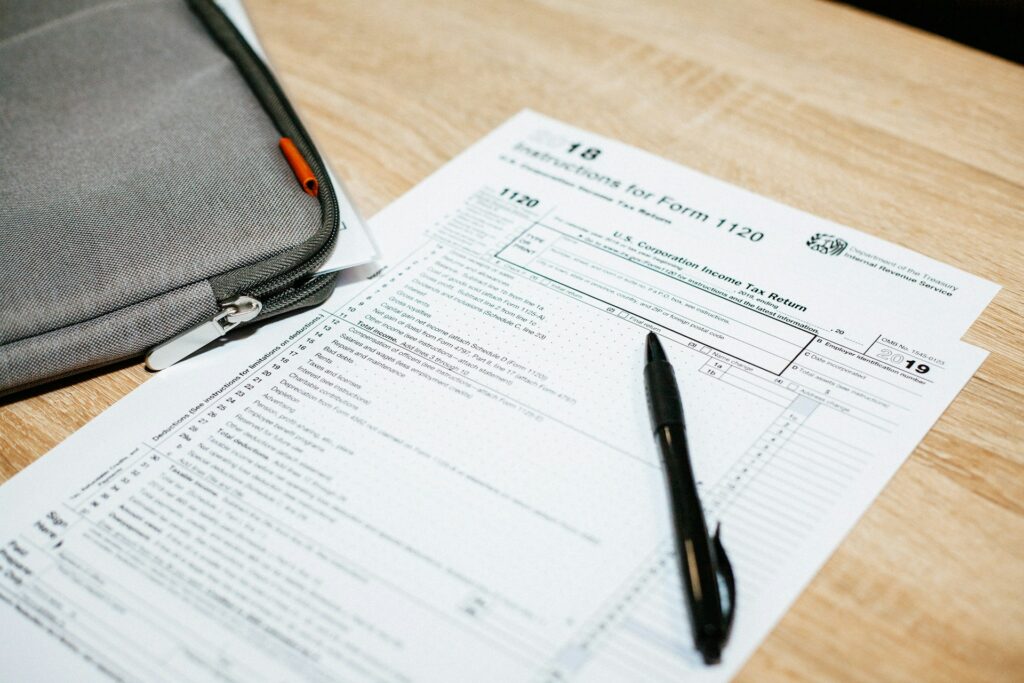As a business owner in the United States, it’s crucial to understand the importance of having a tax permit. This document allows you to collect and remit sales tax to your state’s tax authority. Depending on the nature of your business, you may also need to obtain additional permits.
Having this permit ensures that your business operates within the legal framework and fulfills its tax obligations. Failure to obtain it or remit sales tax correctly can result in hefty fines and legal consequences. Therefore, it’s essential to obtain one before making any sales.
Although the process of acquiring this permit might seem like a daunting task, it’s a necessary step that shouldn’t be skipped. In the following sections, we will guide you through the entire process so that you’re able to do it with zero hassle!
Key Takeaways
- A tax permit is necessary for U.S. businesses to facilitate the collection and remittance of sales tax.
- Failure to obtain or correctly use tax permit can lead to fines and legal consequences.
- Tax permits are state-issued licenses for collecting sales and use tax, requiring accurate record-keeping.
- Businesses may need different permits, such as sales tax permits for tangible property and use tax permits for a combination of tangible property and taxable services.
- The registration process involves providing necessary documentation, and regular renewal is essential for ongoing compliance.
Understanding Tax Permits and Their Significance
As a business owner in the United States, obtaining a tax permit is essential. This document allows you to make sales and collect sales tax. It is important to maintain accurate tax records and ensure compliance with the required tax rate to avoid penalties and fines.
A tax permit is a license issued by the state government that allows business owners to collect sales and use tax from their customers. The permit ensures that businesses comply with tax laws and regulations, and it helps to keep track of taxable transactions.
When it comes to taxes, the records you keep are crucial. Accurate and detailed tax records can help you avoid mistakes and ensure that you are paying the correct amount of taxes. You should keep all records of sales, purchases, and expenses related to your business. These records will assist you in completing tax forms and filing your taxes.
The tax rate varies depending on the state and local jurisdiction, which is why it is important to understand the applicable tax rate for your business. You may need to register for multiple tax permits depending on the nature of your business, such as sales and use tax and other types of taxes.
Different Types of Tax Permits
There are several different types of permits that your business may need. The most common types are sales and use tax permits.
The former is required if your business sells tangible personal property, such as goods or merchandise. In contrast, the latter is necessary if you sell both tangible personal property and taxable services, such as repair services or installation.
In some states, a use permit may also be required if you use, store, or consume goods in the state where they were not purchased but were subject to sales tax if purchased locally. If you are unsure which permits your business needs, you can check with your state’s Department of Revenue or tax agency.
The Registering Process Explained
To register for this permit, you will typically need to fill out an application form and provide various documentation, such as your business’s name and address, your federal tax identification number, and your business’s structure.
In some cases, you may also need to provide additional information, such as your estimated monthly or annual sales revenue or the categories of goods or services you plan to sell. Once you have submitted your application, it may take several weeks for your permit to be approved and issued. However, some states offer expedited processing options for an additional fee.
Remember to renew your permit regularly and ensure that your business remains in compliance with all relevant tax laws and regulations.
Maintaining Tax Compliance
Now that you have obtained your permit, it is crucial to maintain tax compliance to avoid penalties and fines. Here are some tips for staying on top of your tax obligations:
- Keep accurate tax records: Proper record-keeping is essential for tax compliance. Make sure to keep track of all financial transactions and expenses related to your business.
- Issue tax receipts: When you make a sale, issue a tax receipt to your customer. This document serves as proof of payment and helps to ensure compliance with tax regulations.
- File tax forms on time: Be sure to file all required tax forms by their respective deadlines. This includes quarterly sales tax returns and annual income tax returns.
- Pay attention to tax rates: Tax rates can change, so it is essential to keep up-to-date with any changes that may affect your business. Check with local and state tax authorities regularly to ensure you are charging the correct rate.
- Report all taxable income: It is essential to report all taxable income, including income from sources outside of your business. Failure to do so can result in penalties and fines.
Conclusion
Obtaining a tax permit is essential for every business operating in the United States, as it serves as a gateway to legal compliance and prevents potential fines. While the process might seem complex initially, it’s a necessary step for legal operation.
With our tips, you can easily obtain your permit and ensure tax compliance, as long as you remember to maintain accurate tax records, issue tax receipts, and file the necessary tax forms!
Tax Permit FAQ
#1. What should I do if my business information or address has changed after obtaining a permit?
If your business information or address has changed, you are required to update the relevant tax authority to ensure your permit information is accurate.
#2. What happens if I fail to register for a sales tax permit?
Failing to register when required to do so can result in penalties and fines from the tax authority. It’s important to comply with the registration requirements.
#3. Do I need a business license in addition to a permit?
In some jurisdictions, businesses may need to obtain a business license in addition to a permit. It’s important to check the specific requirements of the relevant tax authority.
#4. Can I apply for a permit or prepaid MTS account for sales tax?
Some tax authorities may offer the option to apply for a prepaid MTS (Merchants Transportation Sales) account in addition to or instead of a traditional sales tax permit.
#5. What should I do if I want to discontinue my business and no longer need a tax permit?
You should inform the relevant tax authorities and follow their procedures for terminating your permit.






